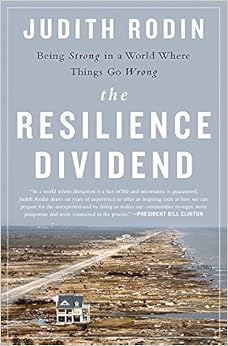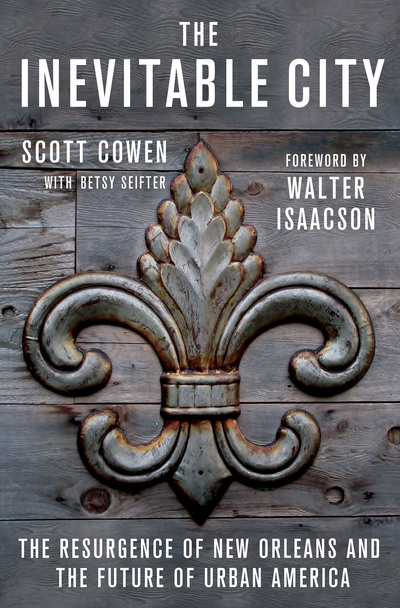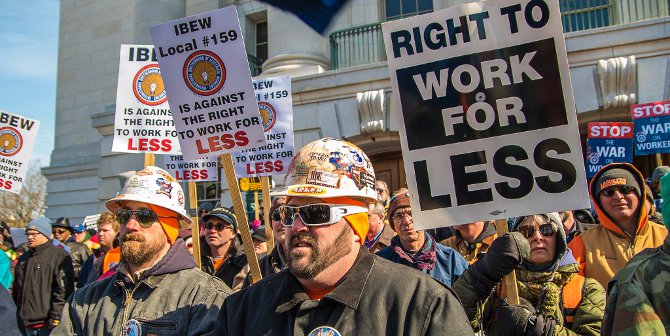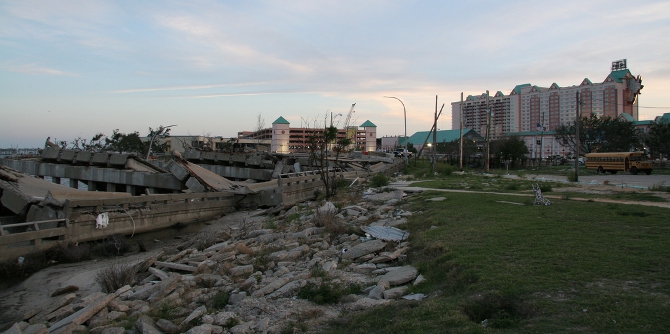Today is the 10th anniversary of the landfall of Hurricane Katrina in Louisiana, one of the worst natural disasters in US history, which left more than 1,500 dead and caused more than $100 billion in property damage. To mark the anniversary, USAPP Managing Editor, Chris Gilson compiles a selection of articles and book reviews from USAPP’s articles which cover the disaster.
How Hurricane Katrina made the Feds more powerful
 The federal government’s botched response to Hurricane Katrina in 2005 permanently damaged the reputation of the then President George W. Bush, and led to a massive shift in how the government responds to similar large disasters. Donald F. Kettl writes that in the decade since the storm hit New Orleans, the federal government’s involvement in disaster relief has grown both in terms of money and oversight — and so have tensions with localities.
The federal government’s botched response to Hurricane Katrina in 2005 permanently damaged the reputation of the then President George W. Bush, and led to a massive shift in how the government responds to similar large disasters. Donald F. Kettl writes that in the decade since the storm hit New Orleans, the federal government’s involvement in disaster relief has grown both in terms of money and oversight — and so have tensions with localities.
 Book Review: The Resilience Dividend: Being Strong in a World Where Things Go Wrong
Book Review: The Resilience Dividend: Being Strong in a World Where Things Go Wrong
In this book, Judith Rodin shows how people, organizations, businesses, communities, and cities have developed resilience in the face of otherwise catastrophic challenges. Debika Ray thinks, if taken as an inspirational manual for policy makers, it is a readable and timely book.
 Book Review: The Inevitable City: The Resurgence of New Orleans and the Future of Urban America by Scott Cowen with Betsy Seifter
Book Review: The Inevitable City: The Resurgence of New Orleans and the Future of Urban America by Scott Cowen with Betsy Seifter
The Inevitable City presents ten principles that ‘changed the game’ for New Orleans after Katrina, offered by community leader Scott Cowen, who was part of those leading the charge to restore equilibrium and eventually to rebuild. Elli Thomas finds that the book tells a fascinating story though the author’s tone is a little self-congratulatory at times.
After Hurricane Katrina, devastated Black neighborhoods created an “opportunity” for redevelopment that focused on gentrification.
 In 2005, Hurricane Katrina caused enormous devastation across the Gulf Coast of the U.S. But while many considered the hurricane to be a tragedy, in the aftermath, many city officials in the region saw it as an opportunity. Kate Derickson looks at how two Gulf Coast cities, Biloxi and Gulfport, used the destruction wrought by Katrina as an impetus for regional development. She writes that this development has been largely focused on poor African American neighborhoods that had already been squeezed by urban development strategies prior to the disaster, and that the nature of these neighborhoods helped to justify officials’ narrative that the storm had rendered them as ‘blank slates’.
In 2005, Hurricane Katrina caused enormous devastation across the Gulf Coast of the U.S. But while many considered the hurricane to be a tragedy, in the aftermath, many city officials in the region saw it as an opportunity. Kate Derickson looks at how two Gulf Coast cities, Biloxi and Gulfport, used the destruction wrought by Katrina as an impetus for regional development. She writes that this development has been largely focused on poor African American neighborhoods that had already been squeezed by urban development strategies prior to the disaster, and that the nature of these neighborhoods helped to justify officials’ narrative that the storm had rendered them as ‘blank slates’.
Featured image credit: Michael Muniz (CC-BY-NC-ND-2.0)
Shortened url for this post: http://bit.ly/1WZ3Arz




